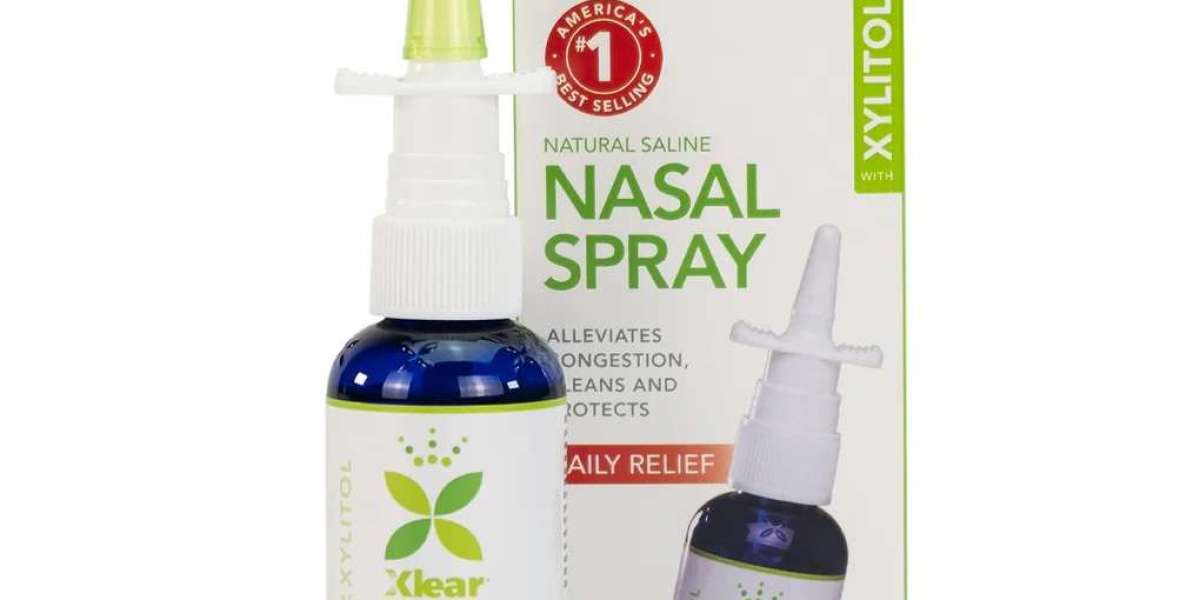Parents often seek safe and effective ways to relieve blocked noses, prevent sinus infections, and maintain proper nasal hygiene. Among the various options available today, xylitol-based products, nasal spray, and sinus rinse have become notable choices. While it’s crucial to consult a healthcare professional before starting any treatment, understanding how these tools work can help parents make informed decisions.
What is Xylitol and How Does It Help?
Xylitol is a natural sugar alcohol found in many fruits and vegetables. It’s widely used as a sugar substitute in gums and oral care products. Interestingly, it also offers benefits for nasal health. When used in nasal sprays, xylitol helps keep nasal passages moist, discourages bacterial growth, and can prevent allergens from sticking to nasal tissues. These properties make it especially beneficial for children prone to frequent nasal congestion or allergies.
Unlike traditional decongestant sprays, which may cause dependency if overused, xylitol-based nasal sprays are non-addictive and can be used regularly. The moisturizing effect soothes dry nasal passages, while its natural antibacterial features provide gentle protection for sensitive children’s sinuses.
Understanding the Role of Nasal Spray
A nasal spray is a common remedy to alleviate nasal blockage. Available in saline, medicated, or xylitol-based versions, it can reduce swelling inside the nose, clear out mucus, and ease breathing. For kids, it’s vital to choose the right type. Medicated sprays may not be suitable for regular use in young children, but saline and xylitol nasal sprays are typically considered safer for routine use.
Using a kids nasal spray helps loosen thick mucus and wash out irritants like pollen and dust. Regular use, especially before bedtime, can improve sleep quality and reduce nighttime mouth breathing, which is common in children with congested noses.
How Sinus Rinse Works
A sinus rinse is another effective method to clean the nasal passages. It typically involves a saline solution poured into one nostril and allowed to flow out of the other. This process helps flush out mucus, allergens, and debris, offering relief from sinus pressure and congestion. While sinus rinses are more commonly used by adults, they can be adapted for children with gentle formulations and under adult supervision.
Parents should ensure they use distilled or previously boiled and cooled water for preparing sinus rinse solutions. This prevents any risk of infection from contaminated water. Also, using the correct technique and amount is essential to make the experience safe and effective for children.
Why Nasal Hygiene is Crucial for Children
Children are more susceptible to colds and infections due to their developing immune systems and frequent exposure to other kids in schools and daycare centers. Maintaining nasal hygiene is one way to reduce the frequency and severity of upper respiratory infections. By incorporating regular use of nasal spray or sinus rinse, parents can help prevent congestion from escalating into more serious sinus issues.
Moreover, chronic nasal congestion can affect sleep, behavior, and even cognitive development in children. Poor sleep due to blocked noses may lead to irritability, trouble concentrating, and reduced academic performance. Simple interventions like using a kids nasal spray or a mild sinus rinse can go a long way in ensuring children stay healthy and breathe freely.
Safe Practices and Precautions
While these nasal care methods are generally safe, it’s important to follow guidelines carefully. Avoid overusing nasal sprays, even saline ones, as excessive use can sometimes irritate the nasal lining. Always check the label to confirm whether a product is safe for children and consult a pediatrician when in doubt.
It is also essential to keep nasal applicators clean to avoid introducing new bacteria into the nasal passages. Each child should have their own nasal spray bottle or rinse device to prevent cross-contamination.
Conclusion
In conclusion, regular nasal care using nasal spray can help manage nasal congestion, improve breathing, and support overall respiratory health in children. These tools provide natural and effective ways to maintain nasal hygiene, especially during allergy seasons or cold outbreaks. Parents seeking gentle, non-pharmaceutical options will find these methods useful for day-to-day wellness.














